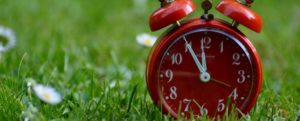
By Julie Lopez
Lawyers, please go to sleep.
Lawyers are ranked as the second most sleep-deprived group of workers in the United States, among home health workers and emergency medical responders. This is largely because the legal field normalizes sleep deprivation as “part of the job.” Lawyers feel tremendous pressure to prioritize billable hours and meet deadlines at all costs. When the pressure to outwork and outperform peers takes hold, sleep is readily sacrificed. Lawyers who can survive on less sleep in exchange for extra work hours are admired and viewed as more dedicated to the job than those who prioritize sleep, exercise, and other forms of self-care. Hustle culture reveres the lawyer who can survive with just four hours of sleep or pull all-nighters to meet a deadline.
The irony is that sleep deprivation actually hurts performance. Sleeping too few hours results in more mistakes, poorer decision-making, less concentration, and slower reaction times. After about 18 hours without sleep, cognitive performance declines in a manner equivalent to legally prescribed levels of alcohol intoxication, and sleeping too few hours for several nights in a row produces similar effects. In sum, the lawyers we applaud for sending emails at 3 a.m. aren’t performing better than those of us who are sleeping. They are performing worse.
Lawyers aren’t unique in their need for sleep to perform well. A study of entrepreneurs found that sleep deprivation is associated with less effective abilities to imagine new venture ideas. Professional sports teams recognize that sleep deprivation impacts performance as much as training or nutrition and that sleep improves performance as well (or better) as performance-enhancing drugs. Stanford’s men’s basketball team participated in a study requiring players to sleep an additional 110 minutes each night. After a month and a half, the players demonstrated a 9% increase in free throw accuracy — an astronomical boost in college and professional sports performance.
Getting too little sleep also increases the already high risk that a lawyer will develop mental and physical health challenges. Insufficient sleep increases negative emotional responses to stressors — of which there are many in the legal field. Sleep deprivation makes it more challenging to manage stress and anxiety, which can increase vulnerability to depression and substance abuse. These are scientifically measurable changes to the brain that occur in the absence of adequate sleep. Brain MRI imaging shows that individuals demonstrate significantly higher emotional reactivity after sleep deprivation. Cortisol levels, the “fight or flight” hormone, increase with sleep deprivation. This can result in the sleepless individual experiencing a constant state of stress, which in turn makes sleep more difficult. Long-term sleep deprivation results in an increased risk of hypertension, diabetes, obesity, heart attack and stroke, and an overall weakened immune system.
The bottom line is that lawyers (like everyone else) need to regularly prioritize sleep for their cognitive, emotional, and personal well-being. And we need to prioritize it in order to do a good job for our clients. There are numerous recommendations regarding how to prioritize sleep. Here are a few of the most common:
- Establish a regular sleep schedule.
- Don’t drink caffeine or alcohol before bed (caffeine keeps you awake while alcohol interferes with restorative sleep).
- Turn off your screens at least an hour before bed.
- Exercise during the day.
- Keep your sleeping area and work area separate.
As for the pressure to sacrifice sleep within the profession, overcoming that challenge is more amorphous. But perhaps a step in that direction is to start recognizing the importance of sleep in the legal field instead of idolizing endless hours of work.